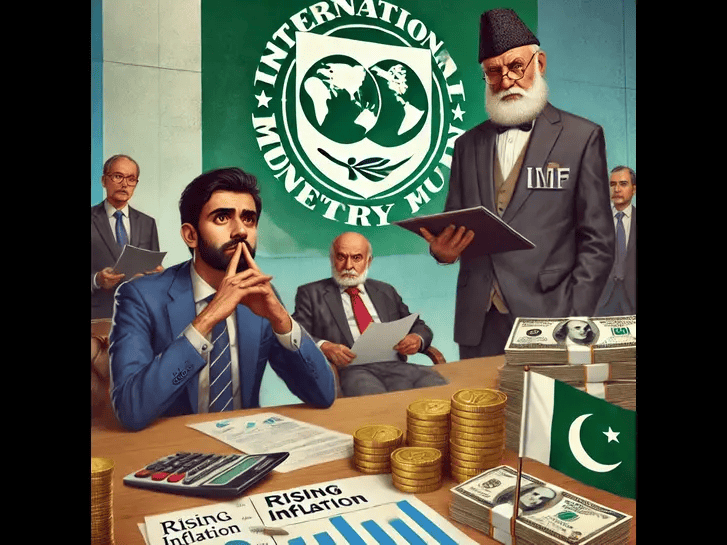Pakistan has frequently sought financial assistance from the International Monetary Fund (IMF) to stabilize its economy. The agreements between Pakistan and the IMF often come with strict conditions, affecting various aspects of the economy and daily life. While IMF loans help in addressing immediate financial crises, they also impose economic adjustments that impact inflation, employment, and social welfare programs.
Understanding IMF Loan Agreements
The IMF provides financial aid to countries facing balance-of-payment crises, helping them stabilize their economies. However, these loans come with structural adjustment programs (SAPs), which require countries to implement specific economic policies. In Pakistan’s case, IMF agreements often involve:
- Increase in Taxation: Higher direct and indirect taxes.
- Reduction in Subsidies: Cuts in electricity, gas, and fuel subsidies.
- Currency Devaluation: Depreciation of the Pakistani Rupee to improve exports.
- Privatization of State-Owned Enterprises (SOEs): Selling loss-making public enterprises.
- Increase in Interest Rates: Controlled inflation but reduced borrowing capacity.
Economic Impact of IMF Loans
1. Rising Inflation
One of the immediate effects of IMF agreements is a rise in inflation. As Pakistan removes subsidies and increases utility prices, the cost of living rises. This particularly affects:
- Fuel prices
- Electricity and gas bills
- Transportation costs
- Essential commodities like food and medicine
2. Burden on Businesses and Employment
Higher interest rates and taxes imposed under IMF conditions can lead to:
- Increased production costs
- Reduced business investments
- Layoffs and fewer job opportunities
Small businesses and industries reliant on subsidies find it difficult to sustain operations, leading to higher unemployment rates.
3. Currency Depreciation and Its Effects
Under IMF agreements, Pakistan is often required to allow market-driven exchange rates. This leads to a weaker rupee, making imports expensive. The consequences include:
- Higher fuel and raw material costs
- Increased prices of imported goods like electronics and machinery
- Rising external debt due to currency devaluation
4. Tax Burden on Citizens
IMF demands tax reforms, resulting in:
- Higher GST on goods and services
- New direct taxes on income and businesses
- Increase in property and withholding taxes
These measures aim to improve revenue generation but put a financial strain on middle and lower-income groups.
Impact on Daily Life
1. Costlier Everyday Goods
With rising inflation, the prices of essential goods increase. Families struggle to afford necessities like:
- Cooking oil, flour, and sugar
- Fuel and electricity
- Public transport and private vehicle expenses
2. Healthcare and Education Challenges
As the government cuts spending to meet IMF conditions, public services suffer:
- Higher fees in government hospitals
- Expensive medicines due to import costs
- Limited education budget, leading to higher school and university fees
3. Reduction in Social Welfare Programs
To control the fiscal deficit, Pakistan reduces subsidies on welfare programs, affecting:
- Benazir Income Support Program (BISP)
- Utility stores providing subsidized food items
- Development projects in rural areas
4. Impact on Salaries and Employment
While costs increase, salaries often remain stagnant, reducing purchasing power. Many companies struggle to adjust to higher operational costs, leading to layoffs and salary reductions.
The Way Forward – Can Pakistan Reduce IMF Dependency?
To minimize reliance on IMF loans, Pakistan needs:
- Export Growth: Strengthening the manufacturing sector and expanding international trade.
- Tax Reforms: Widening the tax base to include undocumented sectors.
- Energy Reforms: Reducing dependency on imported fuel and investing in renewable energy.
- Agricultural Development: Enhancing food production to reduce import dependence.
- Industrialization: Encouraging local businesses through incentives and easier financing.
Conclusion
IMF loan agreements play a crucial role in stabilizing Pakistan’s economy but come at a cost. Rising inflation, high taxes, and job uncertainty create challenges for businesses and households alike. While financial assistance provides temporary relief, long-term economic stability depends on self-reliance, structural reforms, and a diversified economy. The key to breaking the cycle of IMF dependency lies in sustainable policies that promote growth, exports, and investment without burdening the common citizen.






